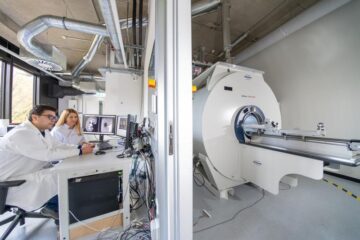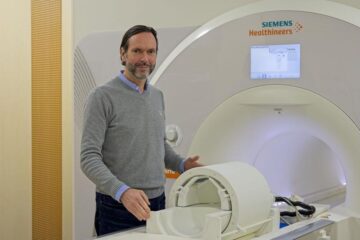More than two billion Euros per year to strengthen European research

The European Science Foundation (ESF) welcomes the suggestion of creating a new funding mechanism for supporting European research in the form of a European Research Council.
The suggestion comes in the final report published today from the European Research Council Expert Group (ERCEG), chaired by Professor Federico Mayor. The report will soon be presented to the Council of Ministers in the European Union. The ERCEG group was set up on the initiative of the Danish Minister of Science, Technology and Innovation, Helge Sander during the Danish EU presidency as a follow-up to a conference in Copenhagen organised by the Danish Research Councils and the ESF in October 2002.
In many ways the report is in agreement with the ESF position paper “New structures for the support of high-quality research in Europe” published last April. There is an evident need for new investment in forefront research to strengthen the quality and capacity of research across the continent and to increase the competition at a European level. ESF agrees that this resource must be integrated and used much more effectively for the benefit of society and reach the highly-needed European dimension of development.
But the European dimension of research cannot be built through competition alone. An ERC should include mechanisms to involve the major sources of research funding that are currently national. Excellence is most rewarding when it permeates the whole system, this is why ESF believes the full participation of national organisations is absolutely necessary.
ESF is willing to play a prominent role in building up the ERC. This can be based on its prolonged European experience in coordinating research and in the strength of its Member Organisations, which includes the national funding bodies. If an ERC is able to channel joint efforts by national organisations, a serious first step towards Europe taking leadership will have been taken. ESF will immediately enter into a consultation with its Member Organisations to the maximum benefit of the ERC.
ESF Secretary General Enric Banda said, “An ERC working in isolation will not have the desired effect. Europe already has a considerable amount of excellent researchers. Now the time has come that they join efforts through competition and collaboration to reach the European dimension we lack”.
Banda further stated, “The establishment of an ERC is strongly needed and fits very well into the European declarations on research stated in Lisbon and Barcelona. I welcome the report from the ERCEG and wish the Danish Minister, Helge Sander, good luck with the future negotiations in the Council of Ministers”.
Media Contact
Alle Nachrichten aus der Kategorie: Förderungen Preise
Neueste Beiträge

Diamantstaub leuchtet hell in Magnetresonanztomographie
Mögliche Alternative zum weit verbreiteten Kontrastmittel Gadolinium. Eine unerwartete Entdeckung machte eine Wissenschaftlerin des Max-Planck-Instituts für Intelligente Systeme in Stuttgart: Nanometerkleine Diamantpartikel, die eigentlich für einen ganz anderen Zweck bestimmt…

Neue Spule für 7-Tesla MRT | Kopf und Hals gleichzeitig darstellen
Die Magnetresonanztomographie (MRT) ermöglicht detaillierte Einblicke in den Körper. Vor allem die Ultrahochfeld-Bildgebung mit Magnetfeldstärken von 7 Tesla und höher macht feinste anatomische Strukturen und funktionelle Prozesse sichtbar. Doch alleine…

Hybrid-Energiespeichersystem für moderne Energienetze
Projekt HyFlow: Leistungsfähiges, nachhaltiges und kostengünstiges Hybrid-Energiespeichersystem für moderne Energienetze. In drei Jahren Forschungsarbeit hat das Konsortium des EU-Projekts HyFlow ein extrem leistungsfähiges, nachhaltiges und kostengünstiges Hybrid-Energiespeichersystem entwickelt, das einen…





















